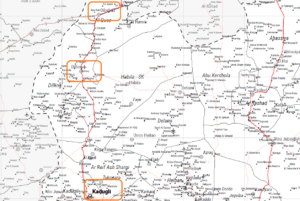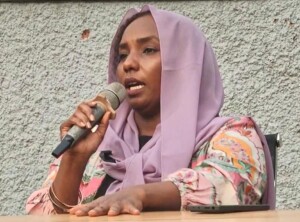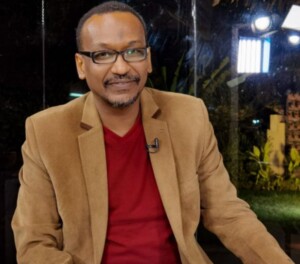Sudan PM Hamdok: ‘Return of displaced, refugees, major challenge for transitional govt’
Sudan’s Prime Minster Abdallah Hamdok says that addressing the issues of displaced people and refugees are the major challenges for the transitional government. In an interview with Sudan National TV Channel on Thursday, the PM also said that Issues such as secularism of state or self-determination should be no prerequisite to achieve a comprehensive peace agreement.
 Sudan's Prime Minister Abdallah Hamdok (File photo: SUNA)
Sudan's Prime Minister Abdallah Hamdok (File photo: SUNA)
Sudan’s Prime Minster Abdallah Hamdok says that addressing the issues of displaced people and refugees are the major challenges for the transitional government. In an interview with Sudan National TV Channel on Thursday, the PM also said that issues such as secularism of state or self-determination should be no prerequisite to achieve a comprehensive peace agreement.
The PM said that his government had a peace framework in place before the current peace talks began. He added that this peace framework aimed to address the root causes of the conflict in the country. “The framework includes various issues such as transitional justice, good governance, and social development,” PM said. He explained that “if we could address the root causes, we would put an end to the vicious cycle of conflict and violence in the country”.
‘If we could address the root causes, we would put an end to the vicious cycle of conflict and violence in the country’ – PM Abdallah Hamdok
Hamdok said that the issues of voluntary return of displaced people and refugees constituted one of the primary challenges that the transitional government faced. He predicted that the new UN Peace mission will help to facilitate the peace process and other related issues.
‘Rebel movements are an integral part of the revolution and thus they are important in the democratic transition and peacebuilding’ – PM Abdallah Hamdok
PM attributed the delay in the signing of a peace agreement between the negotiating parties in Juba to the number of different tracks initiated last year. The current peace negotiations in Juba, brokered by the South Sudanese government, have been divided into five tracks: Darfur, the Two Areas, eastern Sudan, northern Sudan, and central Sudan.
He stressed that the government remained in contact with the rebel movements until a peace deal can be concluded. “Rebel movements are an integral part of the revolution and thus they are important in the democratic transition and peacebuilding,” he concluded.
Radio Dabanga’s editorial independence means that we can continue to provide factual updates about political developments to Sudanese and international actors, educate people about how to avoid outbreaks of infectious diseases, and provide a window to the world for those in all corners of Sudan. Support Radio Dabanga for as little as €2.50, the equivalent of a cup of coffee.












 and then
and then